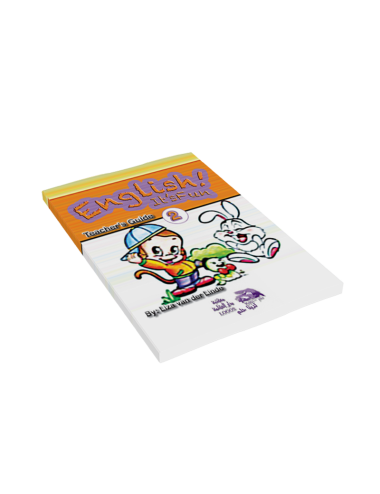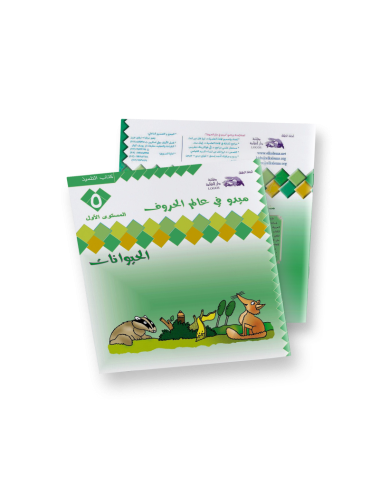English! It’s Fun: Teacher’s Guide2
This second level of English is fun is a program with an open end. The skills and creativity of the teacher are the key for success.
0.09 kg - 810 kg
This second level of English is fun is a program with an open end. The skills and creativity of the teacher are the key for success.
Montessori at the Arabic Home is written to introduce the Montessori philosophy in brief for parents and preschool teachers, who just start to read about the idea's of Maria Montessori. The simple style and many practical idea's are the strength of this book.
The last student book of level 1. Repetition of the learned words and writing new words and letters learning to read sentences around the theme 'the Zoo' is inspiring the children to develop their verbal and written language, their listening, communication and reading skills.
Through working with this third book of the program Mido in the World of Letters, The trip, the child learns practical daily living skills, social skills and about cooperation with peers. Of course he works on auditive and visual skill development and learning words and letters.
This guide has a day-by-day set up series of lessons. The program has 5 units, which are described in detail in order to develop the child in cognition, motor skills, social skills, creative and language skills.
Reading and writing new words and learning the fatha all in the context to develop the needed reading and writing skills. Visual and auditory exercises. Working around the subject: My school.
This box with pictures of the 'to-learn-words' , the word cards and letter cards ( each one in three colors - beginning, middle and ending letter) are a key means is teaching the children level 2 of Mido in the World of Letters.
This box with pictures of the 'to-learn-words' , the word cards and letter cards (for each one to learn word the first letter) are a key means is teaching the children level 1 of Mido in the World of Letters.
The Mido series is designed to help your child develop effective learning styles, by helping them to draw on their own experience and to relate this to their book learning. It is a well known fact that the development of the thinking of a child starts with doing or, 'experiencing the world around them', which results in them 'having an active mind ful of conceps' of things and situations. Their active involvement gives them a store of information in their minds that can then be reproduced.
The Mido series is designed to help your child develop effective learning styles, by helping them to draw on their own experience and to relate this to their book learning. It is a well known fact that the development of the thinking of a child starts with doing or, 'experiencing the world around them', which results in them 'having an active mind ful of conceps' of things and situations. Their active involvement gives them a store of information in their minds that can then be reproduced.
The Mido series is designed to help your child develop effective learning styles, by helping them to draw on their own experience and to relate this to their book learning. It is a well known fact that the development of the thinking of a child starts with doing or, 'experiencing the world around them', which results in them 'having an active mind ful of conceps' of things and situations. Their active involvement gives them a store of information in their minds that can then be reproduced.
The Mido series is designed to help your child develop effective learning styles, by helping them to draw on their own experience and to relate this to their book learning. It is a well known fact that the development of the thinking of a child starts with doing or, 'experiencing the world around them', which results in them 'having an active mind ful of conceps' of things and situations. Their active involvement gives them a store of information in their minds that can then be reproduced.












